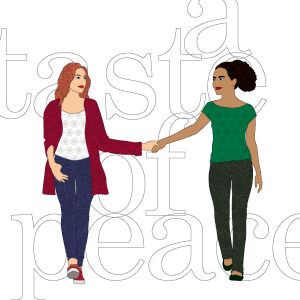“I can’t feel my legs,” Amelia had told me, plainly.
I blinked, twice, then kept staring at her, waiting for Mel to explain to me what she meant. But no explanation came.
I think I was half-expecting that entire situation to be some set-up for a joke, or a prank of some sort. But I knew Amelia well enough to know that she’d never joke about something as serious as that. What did she mean she couldn’t feel her legs? Why wouldn’t she? Could it be a side effect of some medication she was taking?
“I... I’ll call a doctor to see you, then,” I offered.
Amelia shook her head. “You don’t understand. The accident, Hannah. When the car hit me, it… broke a few ribs, and also a couple of vertebrae.” She locked eyes with me, then, and said: “I’m paralyzed.”
The tug of anxiety in my chest grew stronger. I knew what Amelia was suggesting, but I just couldn’t wrap my head around it. Paralyzed? That was… an exaggeration, wasn’t it? It’s just been a few days, surely Mel would get better from it soon.
“But… you’ll get better, won’t you?” I asked. “I mean… you said earlier that when the accident happened you couldn’t move at all. And now you can. Doesn’t this mean it’s a temporary thing?”
Amelia didn’t answer that. She didn’t have to, I could tell from her eyes what she was thinking. She thought that whatever it was that happened to her was permanent. And though I tried to believe otherwise, I feared she might be right.
Later, while Amelia slept, I approached her attending physician and inquired her about the injury. I wanted to know if she would recover, and how quickly.
“It’s too soon to tell,” said the physician, a middle-aged black woman with glasses and an afro haircut. The ID card hanging around her neck told me her name was Dr. Amanda Stanford-Niehls, Associate Neurologist.
She glanced quickly at Mel, then back at me, and explained the situation.
“Amelia has a lumbar vertebral fracture,” said the woman, “and it’s possible she’ll suffer some degree of paralysis, but any assessment of function at this point is premature. She’s in the acute stage of the lesion. It will take a few more days for her condition to stabilize enough for a more precise exam. Still…” the physician lowered her voice. “…I’m not confident in her making a full recovery from this. I can’t give you a prognosis yet, but, from my experience with spinal cord injuries, it might be wise to prepare for the possibility of a permanent injury. What’s your relation to her?”
“I’m her girlfriend,” I told her.
Dr. Niehls placed a hand on my shoulder.
“The next few months will be a trial period for Amelia. She will need a lot of help and support from her loved ones. I would like to talk to her family, so we can plan for the challenges ahead of us. Do you think you can contact them and ask them to come? Her parents, for example?”
I hesitated.
Parents. Amelia had mentioned them to me in conversation, once or twice, but most of the time she avoided the subject. I knew why. In her interviews online she spoke at large of how they had severed ties with their daughter after her transition. Vin was the only one who stayed.
“I’ll talk to her brother,” I told Dr. Niehls. “He’s… sort of the only family she has, nowadays.”
Dr. Niehls sighed, a little downcast. “That is unfortunate.”
“Wait, what about me? I could do it,” I offered, without hesitation. “Whatever it is that Mel needs for her recovery, I can help with it.”
The woman smiled. It was the first time I was seeing her smile, and I was pleasantly surprised. “It won’t be easy. Are you ready to stand by her side through this?”
“I am,” I said.
—
Dr. Niehls taught me a lot during her visits to Amelia in the patient ward. My “role” for the first few weeks was to passively mobilize Mel’s legs in a series of exercises. It was supposed to prevent rigidity from lack of movement. In time, Mel would be able to do those exercises by herself. But for now she needed to stay mostly still while her injury healed. When Amelia’s injury finally moved into the spastic stage, at which point a full assessment of the disability was due, Dr. Niehls showed me how to perform a routine neurology exam, teaching me the step by step of testing each type of sensibility, then allowed me to conduct the examination under her supervision.
“Can you feel this?” I asked Mel, lightly touching the needle against her right arm. When she confirmed it, I repeated the gesture on the other arm. “What about now? Is it the same as the other side?”
Amelia nodded, and I looked at Dr. Niehls for pointers.
“Well, now that you got the hang of it, we’re going to do the whole thing in order. Start from the toes, then work your way up to her waist, always comparing one side to the other.”
I did as I was told. At first, I found the whole thing rather unsettling. I had yet to get used to the fact that Mel really felt nothing from her knees down. But once we moved to her thighs, and I started to get a reaction, I began to feel the examination was actually somewhat pleasant to conduct. I hadn’t realized I was smiling until Mel pointed it out to me.
“Is pinpricking me that much fun to you, Honey?” Amelia asked.
“Hey!” I said. “You’re not supposed to look.”
“I know, I know. Do you thing, doctor,” she joked. And, to my surprise, I didn’t mind having her call me that. I made a mental note to look further into that at a more appropriate time.
Later, once the examination was completed and Dr. Niehls had left us to check on her other patients, I climbed on Mel’s bed and laid down beside her. It was strange. I felt closer to her at that moment than I had ever been before.
“So… what’s the prognosis?” she joked.
I giggled. “I don’t know. But whatever it is, I’m here for you, okay?”
Amelia pulled my face closer to hers, and kissed my forehead.
“I know. And thank you.”
That night I fell asleep beside her, and the hospital staff was kind enough to let me stay that way until visiting hours resumed in the morning.
—
Amelia hated that I was skipping classes in order to take care of her, and she tried to talk me out of it exactly two times. On the first time I relayed to her the whole list of reasons why I’d rather stay there instead: it wasn’t just that she needed me, no. I was there because I wanted to. I wanted to know what it was like to take care of someone. I wanted to be there for my girlfriend in her time of need. I also enjoyed learning about medicine from Dr. Niehls. And finally, there was little point in watching classes if I was already dead set on switching to a different major anyway.
On the second time I just told her to suck it up and accept that I would be there and that she had no say in the matter. And, when she still tried to complain, I shut her up with a kiss. I didn’t hear any more complaints from Mel after that.
A few days later, Dr. Niehls gave Amelia and I a class on proper wheelchair adaptation and usage. She took all of Mel’s measurements, and told her that she could try to get her a custom-made chair through the public health system, but that the queues for that were somewhat long. Since Mel’s income came exclusively from her part-time job — which now we weren’t even sure she’d be able to keep —, the chance of her being able to afford a custom chair was slim. But that didn’t mean that all hope was lost. Because, that night, I secretly spoke to Vincent and Janis on the phone, and then had a long conversation with my parents.
I went to sleep that night feeling hopeful. If everything went smoothly, I realized, we just might be able to pool the money for her chair. I knew for a fact that Mel would get angry at me for spending money I didn’t even have on this, but after Dr. Niehl’s speech on the importance of a proper chair, I felt this was the least I could do for the one I loved.
And so, when Mel was finally discharged from the hospital, I walked by her side as she drove a regular hospital wheelchair to the front of the building, where, I knew, Vincent was waiting for us with Amelia’s new wheelchair.
She took one look at it, then at me, and cursed out loud. I laughed.
“Oh, come on! I can’t believe you did this!” she complained.
“Damn right I did. We did,” I said, exchanging a meaningful look with Vincent, who nodded. “Vincent, Janis, Ceres, my parents, everyone pitched in.”
“Y– your parents?!” Mel stuttered when saying it.
“I’ll pay them back, you don’t have to worry,” I explained, fully aware that Amelia would still worry about it, either way.
We rode together to Vin’s apartment, with Vin and I cheerily chatting to each other alongside a very grumpy Amelia who couldn’t get over how much money we’d just spent on her. But we loved her, and she would just have to deal with it.










![[stalled] A Taste of Peace ~ Sequel to Waiting for Dawn](https://us-a.tapas.io/sa/6c/a292a077-8e16-40c5-b62f-1768c29d65bb_z.png)

Comments (3)
See all